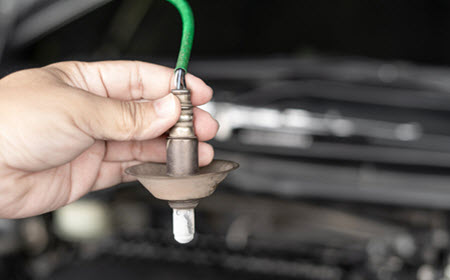Most modern cars come equipped with varying sensors, all having different purposes. They are smart devices responsible for monitoring your vehicle’s condition and essential for its optimal performance. These sensors are designed to monitor specific components and relay information about such parts to the ECU.
While most times, the sensors fail due to old age, other factors could also cause their failure. The failure of a sensor impacts its proper functioning and transmission of information to the ECU. Consequently, this affects your vehicle’s optimal functioning. Oftentimes, you may notice bad fuel efficiency, engine misfiring, heavy exhaust fumes, etc.
The Usual Culprits of Sensor Damage
There are different sensors in a car, and some even require more than one unit to perform their function effectively. For instance, most vehicles have more than one oxygen sensor to effectively monitor how much-unburned oxygen is present in the exhaust fumes. Other sensors in a vehicle include the engine oil sensor, mass airflow sensor, coolant temperature sensor, throttle position sensor, fuel pressure sensor, coolant level sensor, etc. Discussed below are factors that can damage these sensors.
- Dirt and other contaminants: One of the primary causes of damage to car sensors is dirt and other contaminants, including fuel additives, sulfur, and lead. These contaminants may clog the sensor and prevent it from sending an accurate signal to your electronic control unit. If these contaminants are not removed, your car’s sensors may become damaged.
- Old age: Like every other electronic device, the performance of your car sensor declines over time. Car sensors have a life expectancy of three to five years. It is advisable to replace your car sensor after covering about 60,000 to 90,000. Just as every part of your vehicle wears out with time, your car sensor may no longer offer accurate data monitoring after prolonged use and may require replacement.
- Lack of regular maintenance: Lack of regular maintenance of your car sensors may cause them to go bad with time. It is advisable to carry out routine preventive maintenance on your car sensors to improve performance and durability. Ensure that they are free from dirt and other contaminants. You can also contact an experienced automotive technician for proper examination and make the replacement if needed.
- Extreme temperature: Another factor that could cause car sensor failure, especially to your car’s oxygen sensor, is a high temperature. Exposure to high exhaust temperatures could damage the sensors. You may notice a gradual decline in the performance of the sensors with constant exposure to extremely high temperatures. Ensure you get your vehicle checked by a reputable automotive technician to diagnose the fault and offer effective solutions.
- Bad piston rings: This is primarily applicable to oxygen sensors. If your vehicle’s piston rings are worn out, it may cause oxygen sensor failure. Damaged valve guides or combustion chamber and cylinder block cracks may cause phosphorus to be produced from the engine block, affecting the oxygen sensor.
Failed Sensors and their Symptoms
The symptom you may encounter may vary depending on the sensor that fails:
- Failed oxygen sensor: The oxygen sensor monitors the amount of unburned oxygen present in the exhaust fume. The failure of this sensor results in poor fuel combustion and the emission of heavy exhaust fumes. You may also notice reduced engine performance, rough idle, decreased fuel efficiency, etc.
- Mass airflow Sensor: The MAF sensor calculates the air entering the engine and communicates to the ECU to send the proportional amount of fuel required for smooth combustion. The failure of this sensor could trigger a check engine light, surging or hesitant acceleration, rough idle, hard start, etc.
- Coolant temperature sensor: This sensor monitors the temperature of the engine coolant to detect how much heat the engine is giving off and to provide an optimum operating condition. The failure of this sensor could trigger a check engine light, failed electrical cooling fans, engine overheating, poor engine performance
Momentum Motorworks Experts to the Rescue
If you have faulty car sensors or need highly  efficient vehicle repair services, Momentum Motoworks has got you covered. We provide outstanding vehicle repair services, including AC repair, engine repair, transmission repair, clutch repair, battery replacement, diagnostic inspections, oil leaks repair, etc.
efficient vehicle repair services, Momentum Motoworks has got you covered. We provide outstanding vehicle repair services, including AC repair, engine repair, transmission repair, clutch repair, battery replacement, diagnostic inspections, oil leaks repair, etc.
We offer the best automotive repair services for BMW, Audi and Mercedes vehicles in Homewood, Mountain Brook, Alabaster, Hoover, Vestavia, and Birmingham, AL. Our experienced automotive technicians are vastly experienced and certified to get your vehicle working in top condition! Call us today!

